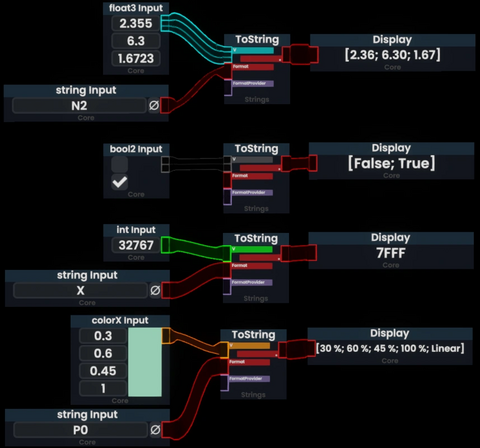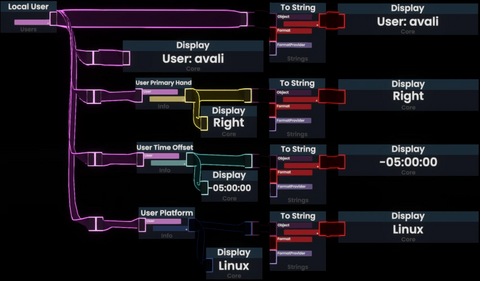m ProbablePrime moved page To String (ProtoFlux) to ProtoFlux:To String: Creating protoflux Namespace |
Added links and a suggestion note, plus other fixes. |
||
| (One intermediate revision by one other user not shown) | |||
| Line 14: | Line 14: | ||
|}} | |}} | ||
The | The <code>To String</code> node turns various [[:Category:Type|types]], including objects, into [[Type:String|strings]]. In general, this will match the string that a [[ProtoFlux:Display|display node]] displays. Use cases include HUDs that involve numbers, such as turning your FPS into text for a display, or readouts of objects or values. | ||
{{Note|If you are looking to take a string and make it into a value instead, try [[ProtoFlux:Parse|Parse]].|suggestion}} | |||
== Inputs == | == Inputs == | ||
Latest revision as of 23:16, 15 April 2024
To String
Strings
The To String node turns various types, including objects, into strings. In general, this will match the string that a display node displays. Use cases include HUDs that involve numbers, such as turning your FPS into text for a display, or readouts of objects or values.
Inputs
V (Generic)
The value to turn into a string.
Format (String)
FormatProvider (IFormatProvider)
The locale to use for the output. Defaults to the invariant culture.
Outputs
* (String)
The value as a string following the format.
Examples
-
Four examples of converting various primitives to string. Three of the examples use Standard Numeric Format Strings.
-
Four examples of converting various objects to string. Note how, in general, the output matches what the display node outputs.

